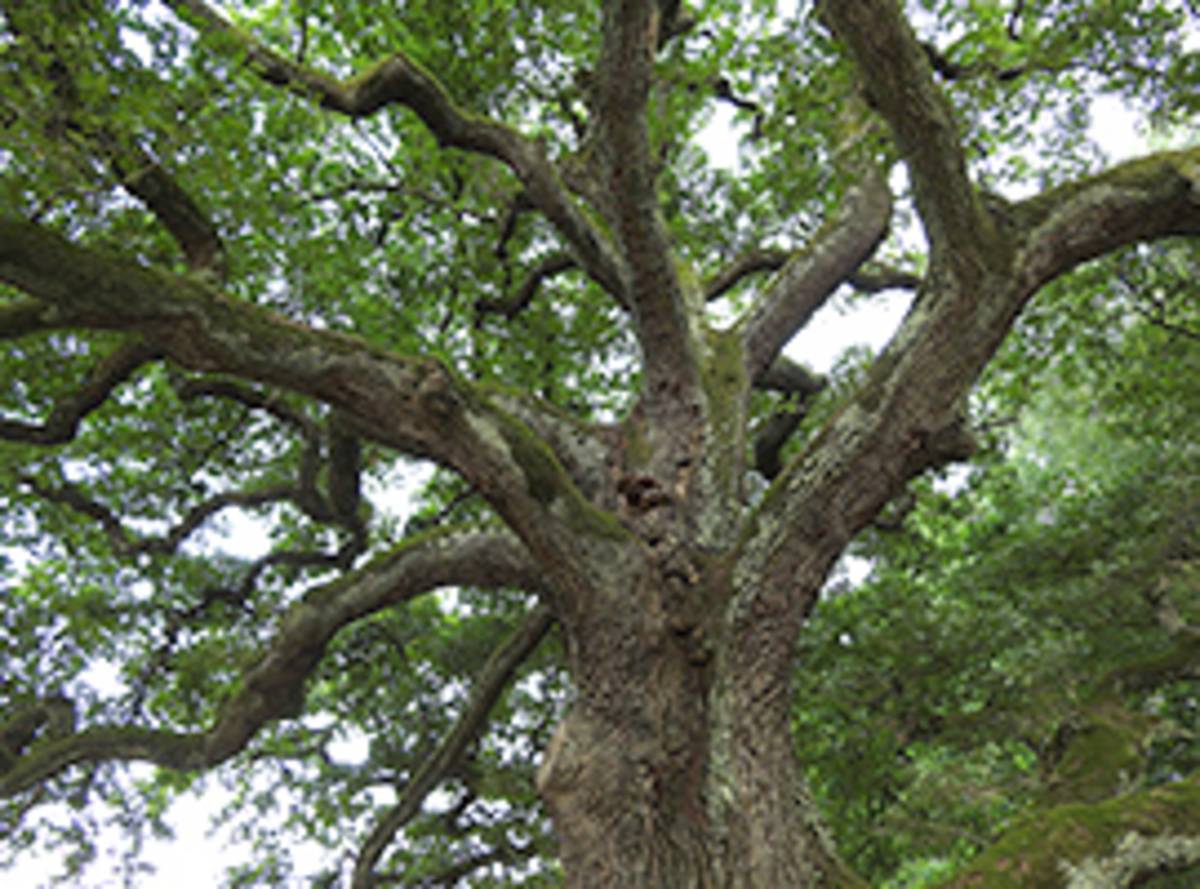As one of the most common tree species in Britain, oak is a natural icon, supports a huge array of native wildlife and is worth millions to the economy. Yet oak is facing a barrage of new threats from pests and diseases, many of which are still poorly understood.
The PRotect Oak Ecosystems (PuRpOsE) project announced this week is led by the University of Reading and includes researchers from CEH as well as the universities of Oxford and York, Forest Research, and the James Hutton Institute. It will harness world-leading British expertise in microbiology, community ecology, forestry, and social science to find answers to the growing problem of AOD, as well as exploring the experience of people and institutions responding to tree health issues.
Rather than focusing on just one route to solve the problem, the project will look at a range of options to save the oak, including mapping likely future hotspots, charting the progress of a range of new pests and diseases, as well as finding cures for the AOD infection itself and influencing how institutions respond to outbreaks.
The project has been funded through the third phase of the Tree Health and Plant Biosecurity Initiative (THAPBI), funded under the auspices of the Living With Environmental Change Partnership with support from the Biotechnology and Biological Sciences Research Council, Department for Environment, Food and Rural Affairs, Economic and Social Research Council, Forestry Commission, Natural Environment Research Council and the Scottish Government.
Dr Beth Purse and Dr Dan Chapman will work on a second new project announced this week which will look at minimising the threat from destructive Phytophthora pathogens and their spread in trade. This project is led by Sarah Green at Forest Research.
Dr Karsten Schönrogge from the Centre for Ecology & Hydrology, will lead our input to the PuRpOsE project. He said, “With the announcement of the additional funding through the Tree Health and Plant Biosecurity Initiative CEH now leads one and is involved in three more projects under the scheme.”
He added, “The new project on oak health will contribute to studies of the predisposition of oaks to the current threat of Acute Oak Decline that is spreading among our native oaks. We will also assess how the import of oak trees to improve the resilience to climate change might affect native associated communities and interact with other diseases such as oak powdery mildew. Finally we will collaborate closely with Forest Research conducting an expert led exercise to identify future threats to oak health.”
CEH staff play a key role in the THABPI programme. We are involved in four projects out of the nine currently funded. In addition to the two new projects we are also involved in the following two projects funded under an earlier phase of THAPBI:
- Dr Stephen Cavers of CEH leads PROTREE (Promoting resilience of UK tree species to novel pests and pathogens: ecological and evolutionary solutions).
- Dr Michael Pocock of CEH is involved in a project led by Fera dealing with New approaches for the early detection of tree health pests and pathogens
CEH scientist Dr Jill Thompson is the coordinator of the THAPBI program. She said, “We have people involved in four out of nine THAPBI projects covering areas of research in genetics, modelling for climate change and pest and pathogen distribution, and citizen science. During the programme we are forming closer ties with a range of collaborators in the tree health, forest ecology and social science areas.”
The research will address knowledge gaps identified by Defra's Tree Health and Plant Biosecurity Expert Task Force and the objectives of the joint Defra/Forestry Commission 'Tree Health and Plant Biosecurity Action Plan'. The projects will also ensure that the UK has increased research capacity and skills for dealing with plant health, and pests and pathogens.
Links:
Additional information:
Staff page of Dr Karsten Schönrogge
BBSRC issued a press release about the new funding
The University of Reading issued a press release about the PURPOSE project
CEH leads the PROTREE project funded under the Tree Health and Plant Biosecurity Initiative
